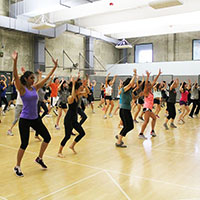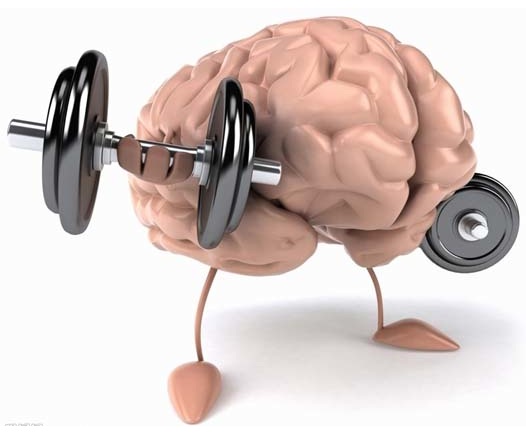Healthy Gains, Happy Brains
by Kristal Lam
Ever miss those days on the playground? Recreation centers on college campuses are where big kids go to run like there’s no tomorrow, discover new toys, and spark some friendly competition. With so much equipment to play around with, it is not uncommon for students to injure themselves in their activity. From simple muscle cramps to life-changing injuries and illnesses, there is a large range of risks that comes with working out. Though, these risks can easily be prevented given a few simple reminders.
 Considering that Berkeley students are studying at the top public university in the world, there is no question that they face rigorous academics on a regular basis, which can easily develop into stress. UC Berkeley’s Tang Center provides resources for stress management, but because individual counseling is limited, the Recreational Sports Facility can be a hot spot for quickly improving both physical and mental health. These preventative tips will ensure that going to the RSF does more good than harm.
Considering that Berkeley students are studying at the top public university in the world, there is no question that they face rigorous academics on a regular basis, which can easily develop into stress. UC Berkeley’s Tang Center provides resources for stress management, but because individual counseling is limited, the Recreational Sports Facility can be a hot spot for quickly improving both physical and mental health. These preventative tips will ensure that going to the RSF does more good than harm.
Working out is a common habit in the college environment, but it has its risks. Overworking of the muscles can lead to injury, no matter how experienced one is in the gym. To prevent oneself from getting hurt, it is important to start with a stretch and a warm-up. Stretching increases flexibility, which gives the muscles a greater range of motion, and warming up further loosens the body up to ease it into the workout. After working out, a cool-down period allows the body to recover.
While exercising is strongly encouraged, compulsive exercising is a commonly neglected condition that can casually develop from a regular workout habit. After constantly setting goals for oneself, one may begin to feel obligated to workout. In addition to feeling guilty when not working out, individuals suffering from this condition may begin to cut back on food to compensate for not burning enough calories. Unlike those temporary muscle cramps, this condition can result in long-term damage in the muscles, the bones, and even the heart.
It is also important to remember that the body needs proper nutrients to work. Weight loss may be a common goal of exercise, but that does not mean one should mindlessly cut back on all foods. To fuel up prior to a workout, eat a light meal that is low in fat and fiber, and moderate in carbs and protein. After exercising, protein is important to help the muscles recover and grow. Most importantly, keep the body hydrated to help maintain homeostasis.
 For those who are taking a break from the gym due to injury or other reasons, do not be afraid to get back to the grind. Stephanie Jenks, a cross country and track runner at Cal, understands the difficulty of building the muscles up again. In the midst of rehabilitating her muscles from multiple stress fractures and Achilles tendonitis, she has advice for those who are getting back to it.
For those who are taking a break from the gym due to injury or other reasons, do not be afraid to get back to the grind. Stephanie Jenks, a cross country and track runner at Cal, understands the difficulty of building the muscles up again. In the midst of rehabilitating her muscles from multiple stress fractures and Achilles tendonitis, she has advice for those who are getting back to it.
“Start slow and don’t overdo it. Never push too hard,” Jenks said.
College is a stressful environment, especially when one attends a prestigious university like Berkeley. Sometimes exercising gets put on the back burner, but it is actually vital to one’s physical and mental health. Next time studying becomes overbearing, check out the Recreational Sports Facility for some stress relieving activity!
